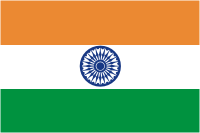 Ahhh...the marketplace in India. Nothing in America remotely compares to this experience (assault, really) of the senses. My experience in the marketplace - the mall, for example, is quite plain and sanitized by comparison. Franchises stores selling branded merchandise to over-advertised consumers that look the same everywhere. Teenagers, god love 'em, man the kiosks and cash registers not really caring how much you spend on those jeans or whether or not you buy anything at all, much less even come into the store.
Ahhh...the marketplace in India. Nothing in America remotely compares to this experience (assault, really) of the senses. My experience in the marketplace - the mall, for example, is quite plain and sanitized by comparison. Franchises stores selling branded merchandise to over-advertised consumers that look the same everywhere. Teenagers, god love 'em, man the kiosks and cash registers not really caring how much you spend on those jeans or whether or not you buy anything at all, much less even come into the store.Merchant: "Today special price because no business."
Me: "800 rupees!?! You know I live here in India - I'm not some tourist fresh off the plane."
And the dance might go on like this for another 5 minutes or so until one of two things happens:
1) He gets annoyed with me because I am seriously lowballing the price and stops talking to me.
2) I get annoyed with him because it's more than I want to pay and I walk out the store, which brings us to Act - 2, where the merchant comes after me into the street.
Merchant: "OK, OK, your price! 300 rupees."
Me: "My price?! My best offer is 200 rupees."
Merchant: "Please, this is not possible. 250 rupees. OK, take it! Take it!"
Me: "220 rupees, maximum price."
Merchant: "OK, OK, take it, 220 rupees."
 In the end it's a fun exchange, if you're willing to accept the fact that sometimes you'll walk away with nothing. There is one golden rule to haggling though: Any Indian you tell about your purchase will respond: "Ahhhh... I think you have paid too much for this." (even if you got it for one rupee).
In the end it's a fun exchange, if you're willing to accept the fact that sometimes you'll walk away with nothing. There is one golden rule to haggling though: Any Indian you tell about your purchase will respond: "Ahhhh... I think you have paid too much for this." (even if you got it for one rupee). The central market in Mysore is called the Devaraja Fruit and Vegatable Bazaar. It was teeming with photo opportunities around every corner... the hard part was finding the right way to discreetly make portraits. It was the highlight of our third day in Mysore.



2 comments:
Ah Sir! This post of yours...is overwhelmingly jocular and hilarious!
Had a hearty laugh going through! I mean...you didn't seem to have taken much time to understand the psyche of the "Indian minds"! Ha ha.
Brilliantly written Sir.
Nayanika
Good post.
Post a Comment